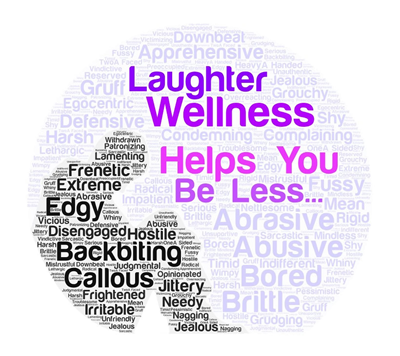After Laughter, Wellness
In the mid-2000s, French-American wellness engineer Sebastian Gendry embarked on a personal quest to recover from burnout and a life filled with stress and negativity. His journey led to the development of Laughter Wellness, an innovative and comprehensive method that integrates the best of laughter practices with research-based techniques from positive psychology, mindfulness, and more.
Laughter Wellness works like a circuit breaker for pain and negativity and a washing machine for dirty emotions. It intentionally sets the energy of laughter in motion, acting as a powerful trigger for benefits in five dimensions (physical, mental, emotional, social, and spiritual health) that form the foundation of healing. It fosters healthy brain functioning and morale and lessens social dysfunction and distrust.
Try It Now!
- Video: 30-minute class (Zoom)
- Video: 60-minute class (Zoom)
- Video: 60-minute class (In-Person)
- On Zoom every Saturday
“It’s like a revitalizing tonic for the mind and body!”

An Effective Complement To Existing Wellness Practices And Programs
Laughter Wellness is used and enjoyed by many professionals, including community centers, corporate wellness managers, Employee Assistance Program providers, fitness trainers, health coaches, HR professionals, mental health professionals, retirement homes, school teachers, and yoga instructors. The core idea is to provide participants with a safe, enjoyable environment that encourages laughter, socialization, and relaxation.
Versatile and adaptable: Laughter Wellness can easily be integrated into various professional settings, making it a flexible and valuable addition to existing wellness practices and programs.

Low-cost and accessible: Laughter Wellness is an affordable and easily accessible intervention, making it an attractive option for a wide range of professionals and organizations.




